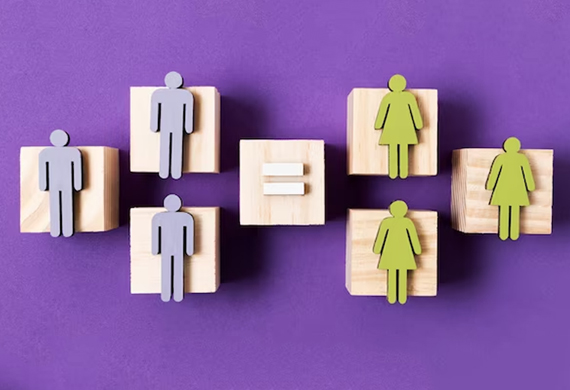
450 Delegates Worldwide launch IVF Global Forum Business for Gender Equality
By: WE Staff | Wednesday, 21 February 2024
The IVF Global Forum Business for Gender Equality based in Santiago, Chile has been launched by more than 450 CEOS, Government Leaders, and Delegates in Gender, Labor, and development. The initiative aims to implement tangible measures that will strengthen the equality between men and women in the workforce as establishing Gender Equity at workplaces accelerates productivity for the firm.
The two-day forum's main objectives are to address the crucial challenges including, eradicating the gender gap, encouraging female participation, and emphasizing the significant role played by the industries driving women's empowerment and gender equity.
The International Labor Organization (ILO), UN Women, the United Nations Development Programme (UNDP), and the Government of Chile have together collaborated to drive this initiative.
The forum witnessed participants engaging in round table discussions to examine the issues and challenges to incorporating gender equality in the workforce. Claudia Pascual Grau, the Minister of Women and Gender Equity of Chile presented the closing ceremony that focused on the importance of eradicating poverty & inequality and empowering democracy in the nation. She recognized the number of contributions made by women toward society at large and encouraged them to enter the labor force.
Randi Davis, the UNDP's Director for Gender Equality and Women's Empowerment, emphasized the necessity of policies that ensure gender equity.
According to Richard Barathe, the Director of UNDP’s Regional Hub for Latin America and the Caribbean, workplaces must prioritize gender equality as a key business factor that will drive inclusivity and sustainability to meet the Sustainable Development Goals by 2030. He further emphasized that by 2025, gender parity in the workforce may contribute $28 trillion to the world economy, as stated by McKinsey Global Institute report. However, the present ratio shares less than half of women compared to 77 per cent of men working outside their homes.
In addition to this, on average, women are paid less than 23 per cent compared to their male colleagues. They are often deprived of opportunities to start their ventures, make money, and engage in public life which results in economies losing out on the skills and contributions that women may offer.
Most Viewed
- 1 Women's Health Startup HerMD Closing Doors Amid Industry Challenges
- 2 5 Famous Women in Indian Armed Forces
- 3 Saudi Women No longer Require Male Permission for Clothing Choices, says Prince MbS
- 4 Kolkata Medtech Startup Innovodigm Raises Rs 5.5 Crore Seed Funding Led by IAN Group
- 5 Yamunanagar's Kashish Kalra Honoured after Securing 111th Rank in UPSC Civil Services Exam
- 6 Madurai Appoints Its First Woman Corporation Head
- 7 IAS Vijayalakshmi Bidari Appointed as the new Nagpur Divisional Commissioner
- 8 American Entrepreneur Lucy Guo Overtakes T Swift to become Youngest Female Billionaire
- 9 ICC Women's World Cup 2025 Trophy Showcased at Indore's Holkar Stadium
- 10 Aparna Saxena's Beauty Venture AntiNorm Launches in India
- 11 Vidya Nataraj Co-Founded BlueStone Jewellery & Lifestyle files IPO
- 12 5 Women Freedom Fighters of India
- 13 Dr. G Krishnapriya appointed as CEO for Trichy
- 14 M3M & Sirona Partner to Introduce Menstrual Hygiene Vending Machines in 15 Locations
- 15 Punjab Govt launches SHE Cohort 3.0 Supporting Tech-led Women Startups
- 16 Indian origin Lawyer, Sweena Pannu appointed as the US New Superior Court Judge
- 17 The Aurora Tech Award recognizes 4 Indian Women-led Startups
- 18 Kerala's Republic Day parade featured an all-female tableau
- 19 Manisha Kabbur Becomes Karnataka's First Woman International Karate Coach
- 20 Director K. S. Ravikumar's Daughter Maalica Ravikumar Launches Life Coaching Company 'Evergrowth Academy' for Women
- 21 Leezu's Raises Pre-Seed Funding to Accelerate Growth in Sexual Wellness Industry
- 22 Sattu: Super-easy summer drink for PCOS gut healing
- 23 Swathi Nelabhatla creates Sitha App, India's First Women-Exclusive Gig Platform
- 24 7 Timeless Female Kathak Dancers & their Iconic Legacies
- 25 Meet 7 Iconic Women Architects of Modern India & their Most Impactful Work
- 26 This Woman-led Insuretech Startup is Helping Bridge the Education Financing Gap in India
- 27 Women Leaders Share Lessons Learnt from India Women's WC Win
- 28 5 Enterprising Women Founders Powering Singapore's Tech & Innovation Landscape
- 29 4 Women. 4 Stories. One Vision for Smarter, Stronger Healthcare
- 30 Global Gender Gap Narrows to 68.8%, But Full Equality 123 Years Away: WEF Report 2025
- 31 Changemakers: 7 Women Entrepreneurs Taking the Make in India Movement Forward
- 32 Meet Lucy Guo, The Youngest Self-Made Female Billionaire Disrupting Tech
- 33 How Women are Driving India's Festive Online Shopping Surge


.jpg)



